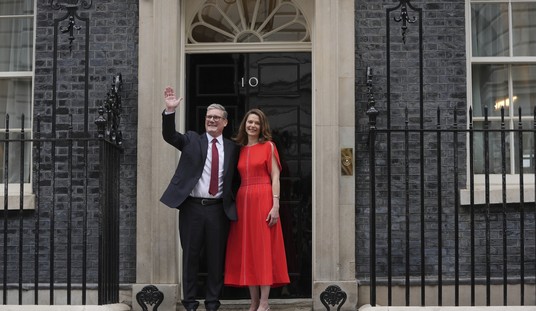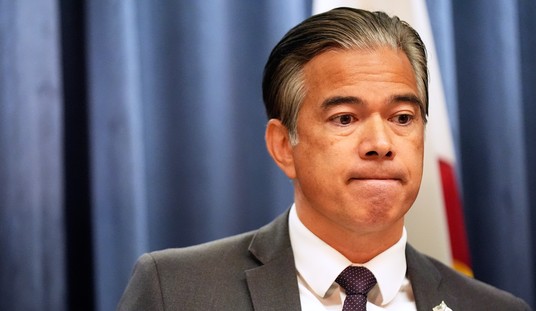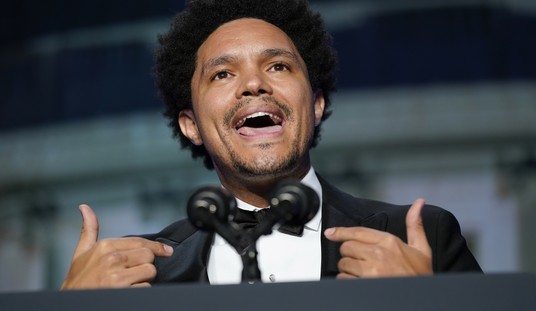A couple of hilarious points of hypocrisy erupted this week in the aftermath of the Supreme Court’s decision to strike down limits on contributions and advertising during political campaigns, especially those applicable to “corporations.” The most hypocritical came from Barack Obama himself, who angrily pledged in a statement and his weekly radio address to counter this decision through legislation:
We’ve been making steady progress. But this week, the United States Supreme Court handed a huge victory to the special interests and their lobbyists – and a powerful blow to our efforts to rein in corporate influence. This ruling strikes at our democracy itself. By a 5-4 vote, the court overturned more than a century of law – including a bipartisan campaign finance law written by Sens. John McCain and Russ Feingold that had barred corporations from using their financial clout to directly interfere with elections by running advertisements for or against candidates in the crucial closing weeks.
This ruling opens the floodgates for an unlimited amount of special interest money into our democracy. It gives the special interest lobbyists new leverage to spend millions on advertising to persuade elected officials to vote their way – or to punish those who don’t. That means that any public servant who has the courage to stand up to the special interests and stand up for the American people can find himself or herself under assault come election time. Even foreign corporations may now get into the act.
I can’t think of anything more devastating to the public interest. The last thing we need to do is hand more influence to the lobbyists in Washington, or more power to the special interests to tip the outcome of elections.
It’s worth pointing out that Barack Obama had an opportunity to limit that influence in the 2008 election simply by remaining in the public matching fund program that every major Presidential candidate had used since Watergate. In fact, Obama himself pledged to do just that in 2007 and again in early 2008, but changed his mind in June when he discovered that he could raise a lot more money than his opponent — by currying favor with Wall Street and the unions, as well as ethanol companies and a host of corporate-sponsored, lobbyist-run PACs. Obama raised over $600 million in 2008 for his eventual victory.
Now he wants to limit the power of politicians to raise that kind of money, which is mighty convenient for incumbents such as himself — and his Democratic allies on Capitol Hill.
Oh, and those lobbyists in Washington were doing quite well before the decision on Citizens United v FEC, certainly better than the country as a whole. The power of lobbyists come from the expansion of government. Campaign contributions from lobbyists exist only because expanded government gives lobbyists more cash to donate.
Meanwhile, the New York Times Corporation complained about being returned to the 19th-century robber baron environment:
With a single, disastrous 5-to-4 ruling, the Supreme Court has thrust politics back to the robber-baron era of the 19th century. Disingenuously waving the flag of the First Amendment, the court’s conservative majority has paved the way for corporations to use their vast treasuries to overwhelm elections and intimidate elected officials into doing their bidding. …
As a result of Thursday’s ruling, corporations have been unleashed from the longstanding ban against their spending directly on political campaigns and will be free to spend as much money as they want to elect and defeat candidates. If a member of Congress tries to stand up to a wealthy special interest, its lobbyists can credibly threaten: We’ll spend whatever it takes to defeat you.
As opposed to what — corporations buying newspapers and endorsing political candidates in the final days before an election? Corporations buying newspapers and printing last-minute attacks against their political bêtes noirs? The ban on corporations was always very selectively enforced, because newspapers managed to lobby for and receive an exemption for newspapers and other media outlets. But they’re also corporations, which should have come under the same restrictions — and as the Court pointed out in its questioning during oral arguments, any printed or broadcast message that explicitly said “Vote for Candidate X” or “Don’t vote for Candidate Y” would have run afoul of the law, including books released in the final days of an election.
Besides, we’ve had these laws since Watergate (not since the 19th century, as the Gray Lady shrieks). Has corporate money evaporated from the political process? Absolutely not. It has simply gotten funneled into arcane and confusing legal entities and types: soft money, hard money, 501(c)3s, 527s, PACs, etc. It hasn’t disappeared; it just has become much harder to trace. Obama didn’t skip the matching-fund program because he thought he could raise $600 million from $20 campaign contributions.
And what about influence? Well, those same laws restricted unions, which can also now spend its money in the open. Did that mean that unions had diminished influence before this week? Er, no. The week before this decision, union leaders attended backr0om-deal meetings on ObamaCare, demanding (and getting) a five-year exemption on the “Cadillac tax” on health-plan benefits. That would have saved them $90 billion over ten years, far more than what they’ve spent in the previous decade to buy their way into the halls of power.
The Supreme Court just leveled the playing field, and Democrats don’t like it one bit.
Update: Ilya Somin has more on corporations and their legal status at Volokh Conspiracy. Front Page has an interview with Ilya Shapiro on this subject as well (hat tip Michael van der Galien) — I had originally thought both interviews were with Ilya Somin; my apologies for the confusion.








Join the conversation as a VIP Member